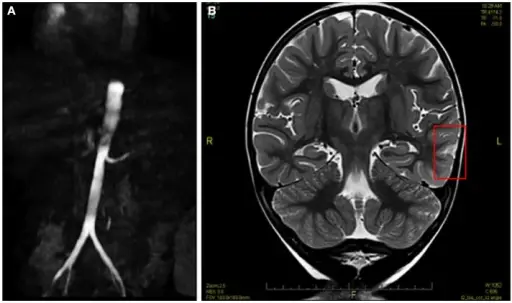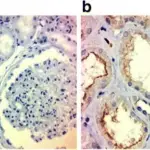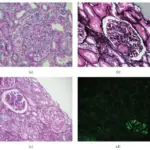Renal artery stenosis is the narrowing of one or more of the renal arteries, main cause of renovascular hypertension and chronic kidney insufficiency.
What is the Pathology of Renal Artery Stenosis?
The pathology of renal artery stenosis is:
-Etiology: The cause of renal artery stenosis is hypertension, atherosclerosis in old age, extrarenal atherosclerosis, diabetes mellitus, smoking, and kidney insufficiency.
-Genes involved: Unknown.
-Pathogenesis: The sequence of events that lead to renal artery stenosis follows formation of atherosclerosis lesions, narrowing the renal arterial lumen.
-Morphology: The morphology associated with renal artery stenosis shows a small ischemic kidney.
-Histology: The histology associated with renal artery stenosis shows atheromatous plaque presence, fibromuscular dysplasia.
How does Renal Artery Stenosis Present?
Patients with renal artery stenosis typically higher in females present at the age range of 65-74 years. The symptoms, features, and clinical findings associated with renal artery stenosis include abdominal bruit, hypertension, sudden kidney function worsening, azotemia.
How is Renal Artery Stenosis Diagnosed?
Renal artery stenosis is diagnosed by laboratory studies such as kidney function test, elevated plasma or renal vein renin, urinalysis. Imaging studies such as ultrasonography, radionuclide scanning, spiral CT angiography, MRI and conventional arteriography.
How is Renal Artery Stenosis Treated?
Renal artery stenosis is treated by medical care- ACE inhibitors, surgical care and revascularization.
What is the Prognosis of Renal Artery Stenosis?
The prognosis of renal artery stenosis is fair. Consequences of renal artery stenosis are hypertension.



